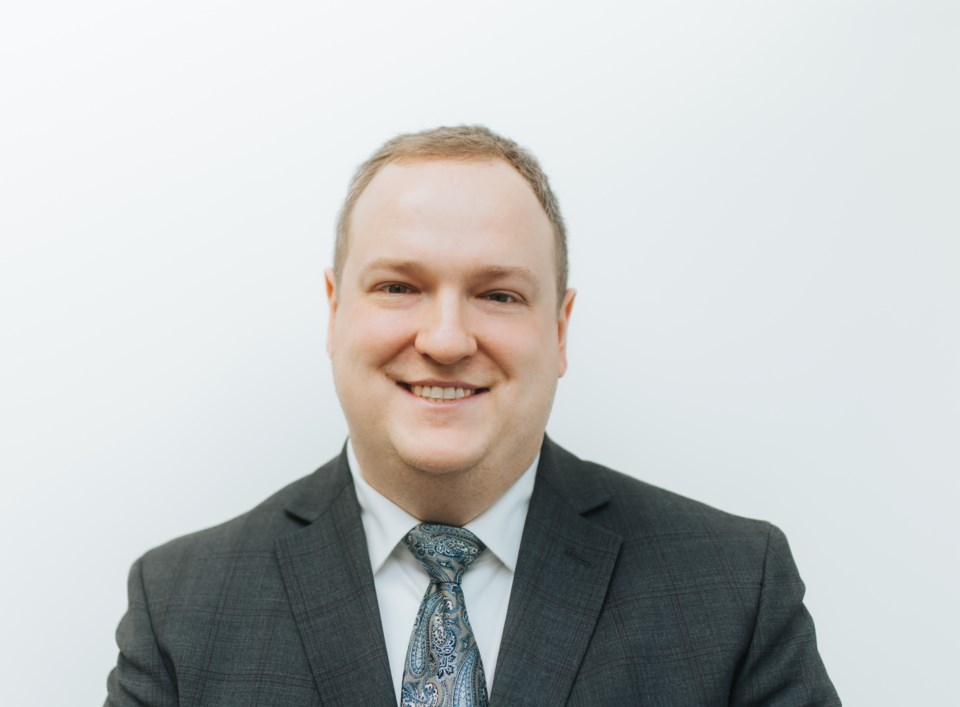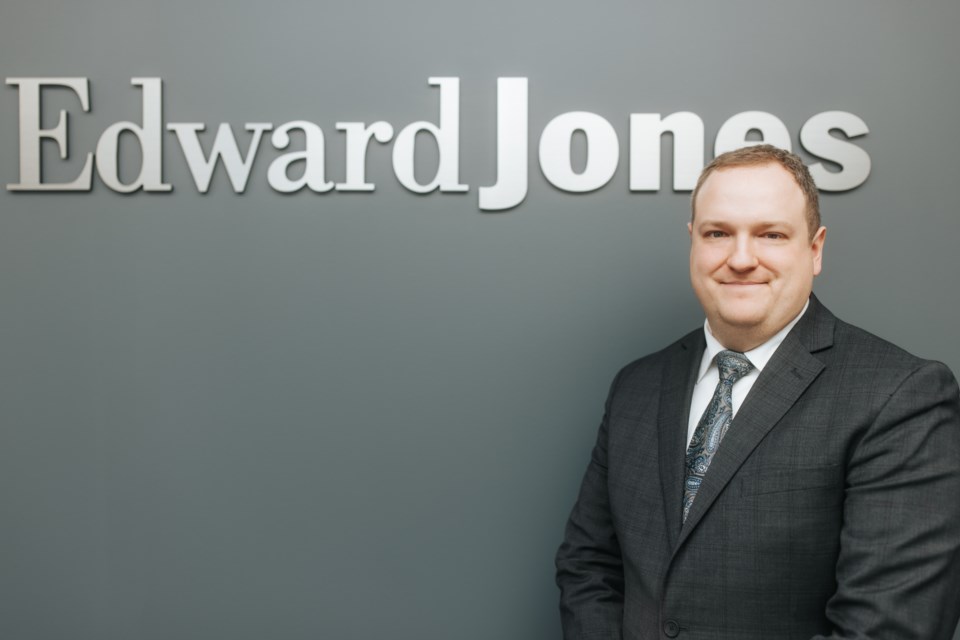Retirement statistics show that 30% of Canadians haven’t either thought about retirement or haven’t been able to save for it yet. In 2018, the average amount Canadians had in retirement savings was about $184,000, far from enough for many to cover the costs of a comfortable retirement.
Trevor Butchard, a Financial Advisor with Edward Jones in Sault Ste. Marie, is often surprised how many people approaching retirement are unprepared. He says, “I rarely speak to people who are all set for retirement and it’s sunshine and rainbows going forward. Many people are shocked when they learn they might have to work for two more years or significantly curtail their spending because they can’t retire yet.”
With the rising cost of living, $184,000 can deplete quickly, making it impossible for retirees to maintain the lifestyle to which they are accustomed.
Butchard says, “A lot of people don’t understand the cost of retirement. For example, they think purchasing a new vehicle will cost them about $30,000 when in reality, new trucks start at $85,000. Taking on debt on a fixed income is a struggle for many people and helping them wrap their heads around the costs they might incur during retirement is a big part of our role.”
Never to late to start saving for retirement
The first step is to sit down with a financial advisor to set up a retirement plan so that you understand how much money you need to retire. If you want to retire in 10 years, 1 year or even a month a financial advisor can start building a plan. Butchard says, “The best day to invest is either today or 30 years ago. If you didn’t start investing 30 years ago, starting today is the next best day.”
Butchard presents clients with a full financial plan on how to achieve their financial goals based on their current circumstances. He says, “For some, it may require no change because their plan looks great, for other it may mean budgeting, and for others it might require trying to achieve aggressive portfolio growth.”
Even if retirement is off in the distance, it’s a good idea to consult with a financial advisor.
Butchard says, “I spoke with a client who is 30 years out from retirement, but her job does not provide a pension outside of the Canada Pension Plan and Old Age Security. Two-thirds of her retirement income must be self-funded. So, we created a very aggressive plan to ensure she has the capital available by the time she wants to hit the retirement button.”
Options to boost retirement savings
Many people are approaching their retirement years with minimal assets and savings. There are many easy investment options including,
Employer Pension Plans may include a Group RRSP or profit sharing or a share program which can significantly boost an employee’s retirement savings. Butchard says, “If an employer matches your RSP contributions, it’s like getting free money for your future. It grows your financial fund faster and over time, with compound interest, these contributions can lead to a substantial nest egg.”
Registered Education Savings Plans will help you save for your children’s education. The government will match 20% of your contributions up to $2,500 per year. Butchard says, “Not taking advantage of such a program means you’re leaving free money on the table.”
A Tax-Free Savings Account or (TFSA) is a fantastic tool for retirement saving as any investment growth within the account is tax free. If you put money in a TFSA when the program began and never invested, you would have $95,000 of sheltered funds. Butchard points out. “If you invested that $95,000 in the stock market within the TFSA, you would have about $270,000. We have a couple of invested TFSAs that are sitting a half a million dollars in tax-free investment growth.” TFSAs are a great way to grow your savings without worrying about taxes upon withdrawal.
Term Life Insurance can be an important tool to ensure your family is covered in the event the unexpected happens.
Canada Pension Plan and Old Age Security can significantly boost your retirement income if you start collecting benefits later.
For example, if taken at age 70, you will receive 42% more, while if you start taking benefits at age 60, you’ll receive 36% less. Butchard says, “You’re rewarded for waiting. For those in good health with other income sources, this can be a smart strategy to ensure a more comfortable and financially secure retirement.”
Pay yourself first is a strategy that will help your savings grow. Canadians should aim to put 10% of their pay cheques away to help fund their retirement.
Understand how taxes work
One of the most difficult challenges for people in retirement is tax planning and ensuring they don’t reach the OAS claw back, while maximizing their returns in converting an RRSP to a RIF.
Butchard says, “Because we have in-depth knowledge of the Canadian tax rules, we can help clients with those issues. My job is to continue to grow those funds to outpace retirement withdrawals to ensure that if you do live to 100, your funds will not run out.”
This is a wake-up call
Trevor Butchard, who has been in the Wealth Management Industry for 13 years has a message for people. “The most valuable thing in investing is time. For those who are 18 years old and want to start saving, they have time to take risks and aim for big returns because they can ride the ebbs and flows in the market. But for older individuals still in the workforce you may need to start saving more diligently and plan better for a secure financial future. You don’t want to outlive your retirement funds.”
Trevor Butchard holds three financial designations to help serve his clients. He is a Certified International Wealth Manager (CIWM), Designated Financial Services Advisor (DFSA) and Fellow of Canadian Securities Institute (FCSI).
Contact Trevor Butchard at (705) 942-5775, via email at [email protected] or online here.

